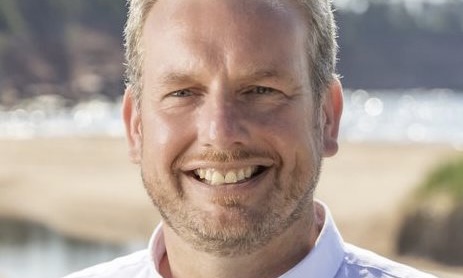Sponsored Content
The PEI BioAlliance’s Emergence bioscience incubator is expanding its programming with new startup mentors across Atlantic Canada in what BioAlliance Executive Director Jason Cleaversmith describes as a response to the sector’s strong growth in recent years.
In November, Emergence received $3.18 million in new funding from the Atlantic Canada Opportunities Agency and the Government of Prince Edward Island to support Emergence into its third iteration, focusing primarily on growing the bioscience sector in Atlantic Canada.
Emergence has renewed ongoing partnerships with startup ecosystem players like Toronto startup hub MaRS Discovery District, the Canadian arm of the world's largest angel investor network in Keiretsu Forum Canada and healthcare-focused investment bank Bloom Burton & Co. The incubator also hired another three part-time mentors based in Nova Scotia, New Brunswick and Newfoundland and Labrador.
“The big change to Emergence is the pan-Atlantic Canada advisor presence,” said Cleaversmith in an interview. “And their role has been twofold: they bring subject matter expertise to the table, and they are also a conduit for liaising with companies across the region, that might have a good fit with Emergence.”
Originally created with a country-wide remit under a National Research Council program, Emergence now supports life science companies in Atlantic Canada, providing both one-on-one and team mentorship, to assist with business strategy, investment, product development and access to networks. Rather than offering cohort-based programming, given the sector and timelines to commercialization, it customarily works with companies over several years.
The mentors that advise Emergence startups are typically executives with decades of relevant experience, such as Matt Roberts, a former Toronto investment banker whose St. John’s consultancy Spear Capital Strategy works with startups and early-stage healthcare companies.
“There are some really interesting companies that have come through to us via the mentors,” said Cleaversmith. “Companies that are interested can apply through our website or via referrals and we have found that there is a solid pipeline of companies interested in the incubator program.”
The incubator model seeks to de-risk innovation and accelerate product development and is also able to co-invest with startups on projects aimed at filling specific knowledge gaps in their operations, with Emergence paying for half of a given project and the startup paying for the other half.
To support the fast-growing community of medical device companies in Atlantic Canada, Emergence is also collaborating with BioNova to support a pilot initiative backing medtech companies.
“There are a great number of innovative medical device companies across the region, and Emergence has put a focus into ensuring our mentorship team can support companies in this area,” said Cleaversmith.
Before the pandemic, Emergence’s client base was largely focused on natural products, fermentation technologies and other consumer-focused plays. Of late, in response to shifts in the industry landscape, the group has been focusing more on human and animal health products and diagnostic testing, in addition to the medical devices.
One reason for the diversification is that the life sciences businesses tied to those industries have been growing in number and relevance within the Atlantic Canadian startup ecosystem in recent years, particularly since the beginning of the pandemic.
Last year, Entrevestor’s 2021 Atlantic Canadian Startup Data Report found that life sciences companies represented 22 percent of the overall ecosystem by number, up from 19 percent the year prior and 17 percent in 2014.
Life sciences companies raised $75.4 million in 2021, and in 2022, many of the most significant innovation funding stories in Atlantic Canada were tied to the industry.
For example, Nova Scotia’s Mara Renewables, which makes algae-based ingredients for nutritional supplements, baby formula and food, raised $39.5 million in a May funding round led by Toronto specialist VC InvestEco Capital. The deal was the region’s second-largest in the first half.
And in December, Halifax medical device maker ABK Biomedical closed a US$30 million Series C funding round as it worked to commercialize one cancer-treating medical device and pursue United States Food and Drug Administration approval for another.
As well as the flow of national and international capital into the region, another sign of maturity is the significant exits that often lead to a second generation of entrepreneurs-investors who want to support the community that supported them.
For example, Charlottetown-based BIOVECTRA, which manufactures pharmaceutical ingredients, is owned by Miami-based private equity firm H.I.G. Capital. Last year, the company was declared by Waterloo incubator Communitech to be on track to crack $1 billion in annual revenue by 2030.
“That (arrival of international companies) facilitates not only the growth of those companies, but there are individuals who are running those businesses, who are still in the ecosystem, who are very willing to give back to their community and actively participate and support the community that they are part of,” said Cleaversmith. “That brings extremely knowledgeable, capable individuals back into circulation."
About Emergence
Emergence is a bioscience incubator that accelerates the growth of Atlantic Canadian startups and early-stage companies moving from ideation to commercialization. Emergence provides companies with business incubation services including the Critical Path program, one-on-one and team mentorship, business strategy and advisory services, as well as access to the Emergence Performance Network.











